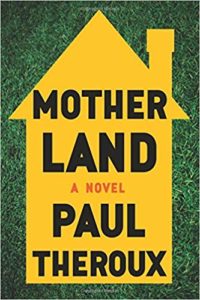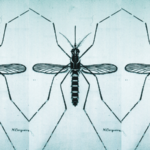If it’s true, as has often been said, that it’s much harder to make good characters interesting than wicked ones, no wonder there are so many monstrous mothers depicted in fiction. Of course gentle, loving ones appear too: think of Mrs. Ramsay in Virginia Woolf’s To the Lighthouse, a luminous portrait of Woolf’s own mother. But was the ghost of that mother haunting Woolf when she wrote of her fierce struggle to kill off the Angel in the House—the pure, saintly female of Coventry Patmore’s Victorian poem by that name—in order to write truthfully? (“Whenever I felt the shadow of her wing or the radiance of her halo upon my page, I took up the inkpot and flung it at her.”)
For centuries, women were pressured to live up to the ideal exemplified in Patmore’s angel, particularly when it came to mothering their children, no matter how ill-suited or ill-prepared they were for the role. Of all the actors in the human drama, none is expected to be as benevolent, as self-sacrificing and noble, as the Mother. No other figure has been so eulogized, glorified, sanctified even. And yet…and yet.
Monster mothers show up early in literature: consider Medea, who murders her own children to punish her faithless husband. Then there are the heroic fiends who kill to avenge the deaths of their young. In Aeschylus’s Oresteian trilogy, Clytemnestra stabs her husband Agamemnon in his bath for having sacrificed their daughter on the altar to propitiate the gods and gain favorable winds for the Greek ships heading for Troy. In the ancient Anglo-Saxon epic Beowulf, Grendel’s demonic mother kills one of the Danish warriors (dozens of whom her giant troll of a son has slaughtered and eaten) to avenge Grendel’s death at Beowulf’s hands, and nearly succeeds in killing Beowulf himself before he manages to subdue and slay her.
The monster mothers of literary fiction have rarely, however, had such a clear-cut rationale for their destructiveness. Nor do they often commit murder. The damage they inflict tends to be more psychic than physical, but that doesn’t make it any less harrowing—or fascinating—to read about. The eight novels I’ve chosen all contain mothers who regard their children chiefly as a means to their own gratification, or as obstacles to that gratification, without any concern for those children’s happiness. Some of them are among my favorite books of all time.
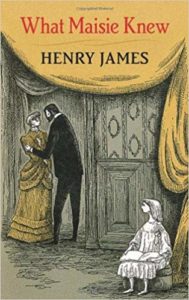
Henry James, What Maisie Knew
Maisie is the child of not one but two poisonously selfish parents, who after their divorce act out their spite for each other through her. She is to them, and knows she is, merely “a centre of hatred and a messenger of insult…she was the little feathered shuttlecock they could fiercely keep flying between them.” As she grows a little older, they tire of their game of abusing each other (and each other’s new spouse) to her, and of trying to snatch her away from the other. She has become a mere inconvienience in their pleasure-seeking lives: “The day was at hand, and she [Maisie’s mother] saw it, when she should feel more delight in hurling Maisie at him [her ex-husband] than in snatching her away.” In his infinitely subtle and stately way, James shows us the development of a moral sense in a young child surrounded by adults who, with a single exception, have none at all.
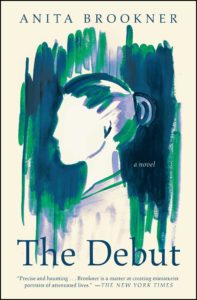
Anita Brookner, The Debut
The parents in Brookner’s novel are less nasty versions of Maisie’s: childishly selfish, but not downright malicious. Ruth Weiss’s mother is a spoilt, histrionic actress who must always be the pampered center of attention and abdicates all responsibility except to her mythic sense of self. Her daughter is of interest to her only as an appreciative audience when there’s nobody more glamorous around and, later, as a substitute servant once she’s sunk into middle-aged, drunken sloth. It never occurs to her that she is yanking Ruth—permanently, as it turns out—out of the scholarly milieu and the life in Paris where she has finally found a real home.
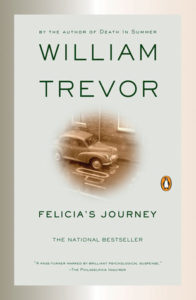
William Trevor, Felicia’s Journey
Mr. Hilditch, the bland-seeming catering manager who lures vulnerable, friendless young women into his house and murders them, is the sinister bogeyman in this novel, a truly horrifying portrait of a serial killer. As certain facts about his shadowy past emerge, we watch in mounting dread, expecting the worst for poor, pregnant, friendless Felicia, whose only money he steals and whom he manipulates into having an abortion. But then Trevor brings the horror full circle: he shows flashbacks of Mr. Hilditch’s life with his mother, a drunken “loose” woman who, when she could no longer entice the policeman or the insurance salesman or any other man into her bed, drew her son into it, always promising she would never make him have sex with her again, always breaking that promise.
Sigrid Nunez, A Feather on the Breath of God
It might be too harsh to call the German war bride in Sigrid Nunez’s deeply humane autobiographical novel an out-and-out monster, since her bitter disappointment with life may account for her failure to show her children the love they hunger for. Nor does Nunez present her as monstrous; she seems to feel more sympathy for her than this reader at least could muster. Still…”The everlasting struggle against the soiled collar and scuff-marked floor brought on true despair. In that struggle, as every housewife knows, children the worst enemy. Her big cleaning days were the darkest days of my childhood. She booted us out of one room after another, her mood growing steadily meaner.” Above all, though, it is her frequently voiced contempt for the sad, silent Chinese man she married, her lack of restraint about expressing that contempt to her daughters, that is hard to forgive. Again, I am talking about myself here. Clearly, Nunez herself has long since forgiven her. All the self-pity, the indignation, with which another writer might have imbued this story is wholly absent.

Richard Yates, Easter Parade
For Richard Yates, the word “mother” just about equaled “monster,” his own self-deluding alcoholic mother being the model for many of those in his fiction. Yet he doesn’t fail to depict their pathos as well. His typical mother figure is more of a monstrous baby than a monster per se, the trouble being that a monstrous baby is ill-equipped to mother her children. In The Easter Parade, she is the middle-aged divorcee Pookie, whose coy flirtatiousness and aspirations to aristocratic grandeur are a constant embarrassment to her two daughters. Towards the end of her life, after a cerebral hemorrhage brought on by years of heavy drinking, Pookie winds up first in a nursing home and then in a state mental hospital; for a time, she is convinced that one of her daughters is a princess—in fact, said daughter is married to a violent, abusive factory worker—and the other is the wife of President Kennedy. She even believes that the President paid her a visit at her bedside. Having recently had to wash and cover her naked body, and attempt to make some order in her filthy apartment, while waiting for the ambulance to arrive, hHer daughters can’t find much humor in this delusion of hers.
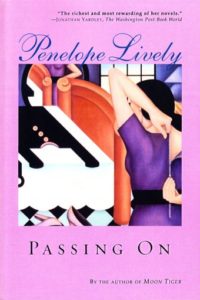
Penelope Lively, Passing On
Ever since I first read this novel about two shy middle-aged English siblings struggling to carve out new lives for themselves after the death of their tyrannical mother Dorothy, one scene has stamped itself indelibly on my mind. Helen finds, in a pocket of one of her mother’s old jackets, a 15-year-old letter from the man she loved, and who loved her—a letter pleading for a rapprochement after a silly misunderstanding, a letter mentioning that he had phoned her several times only to be told (presumably by her mother, who of course never reported those calls to her) that she was out. It is one of the most heartbreaking might-have-been moments I know of in literature: by keeping that letter from her, Dorothy ensured that Helen would remain her insecure spinster daughter, living at home at her beck and call. Such a small, petty act, nothing dramatic about it, and yet utterly devastating in its cruelty.
Paul Theroux, Mother Land
In Theroux’s autobiographical novel, each of his six siblings who survived infancy is an object of the narrator’s contempt, but the prize monster, the object of his purest rage, is, as the title suggests, their devious, malevolent mother. Repeatedly compared to a brutal dictator, she “had a predator’s eye and nose for a person’s weakness and was remorseless in exploiting it. We were shocked at Mother’s sudden denunciations, not just the vividness of them but the basis in fact, followed by the serious question: who’s next?”
Gail Honeyman, Eleanor Oliphant is Completely Fine
So as not to spoil the story for those who haven’t yet read this quirky, engaging novel, I won’t disclose the nature of Eleanor’s mother’s horrendous deeds, since they are revealed only at the end of the book. Suffice it to say that of all the monstrous mothers discussed here, she may very well be the worst.


